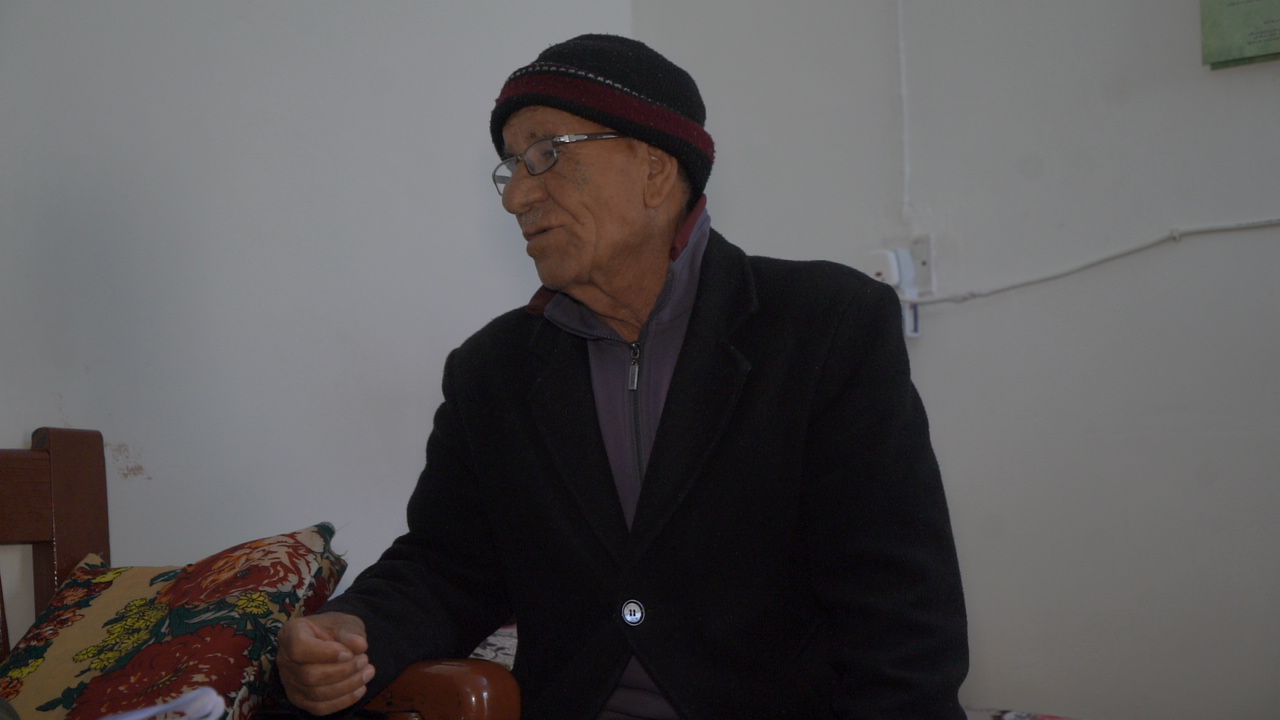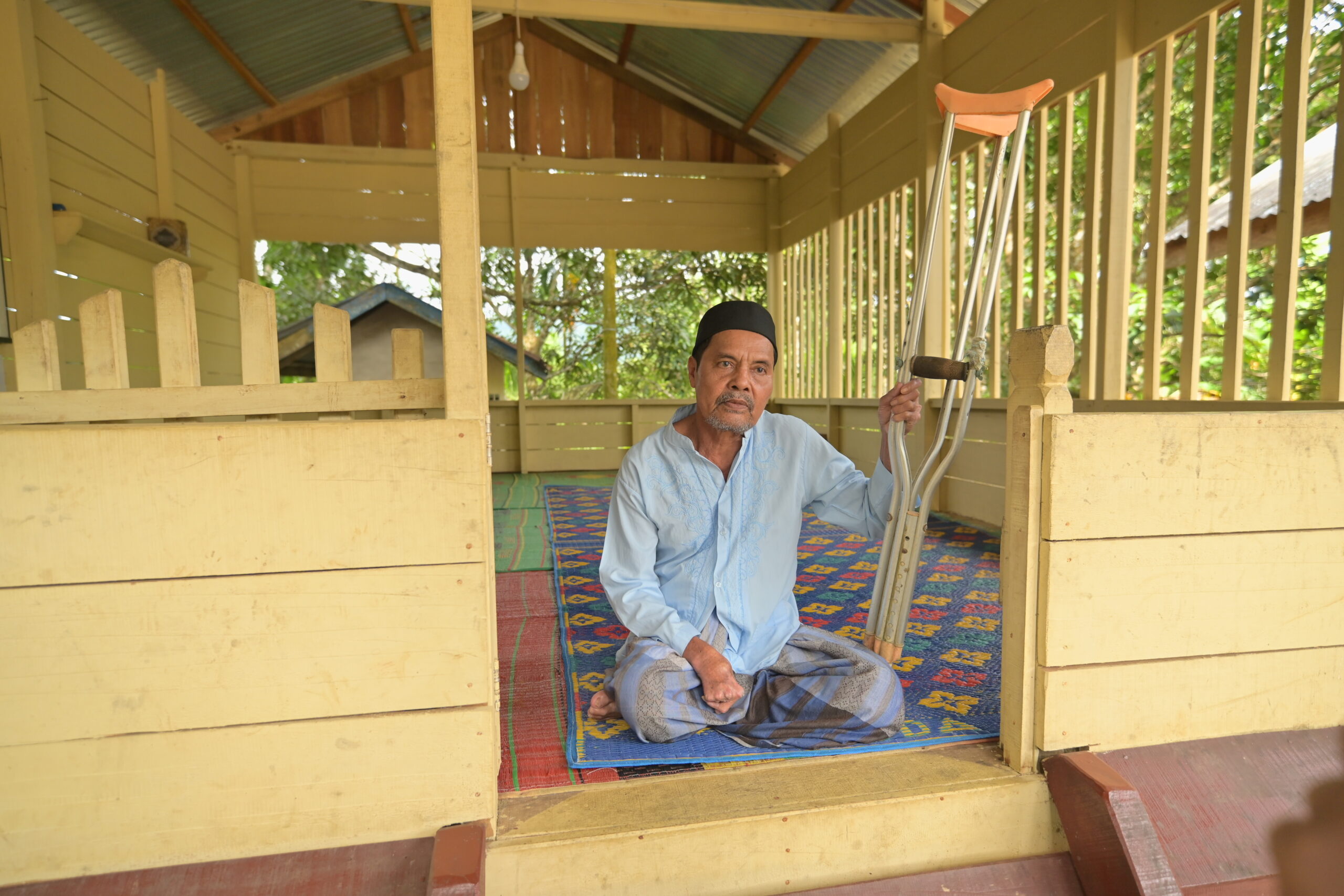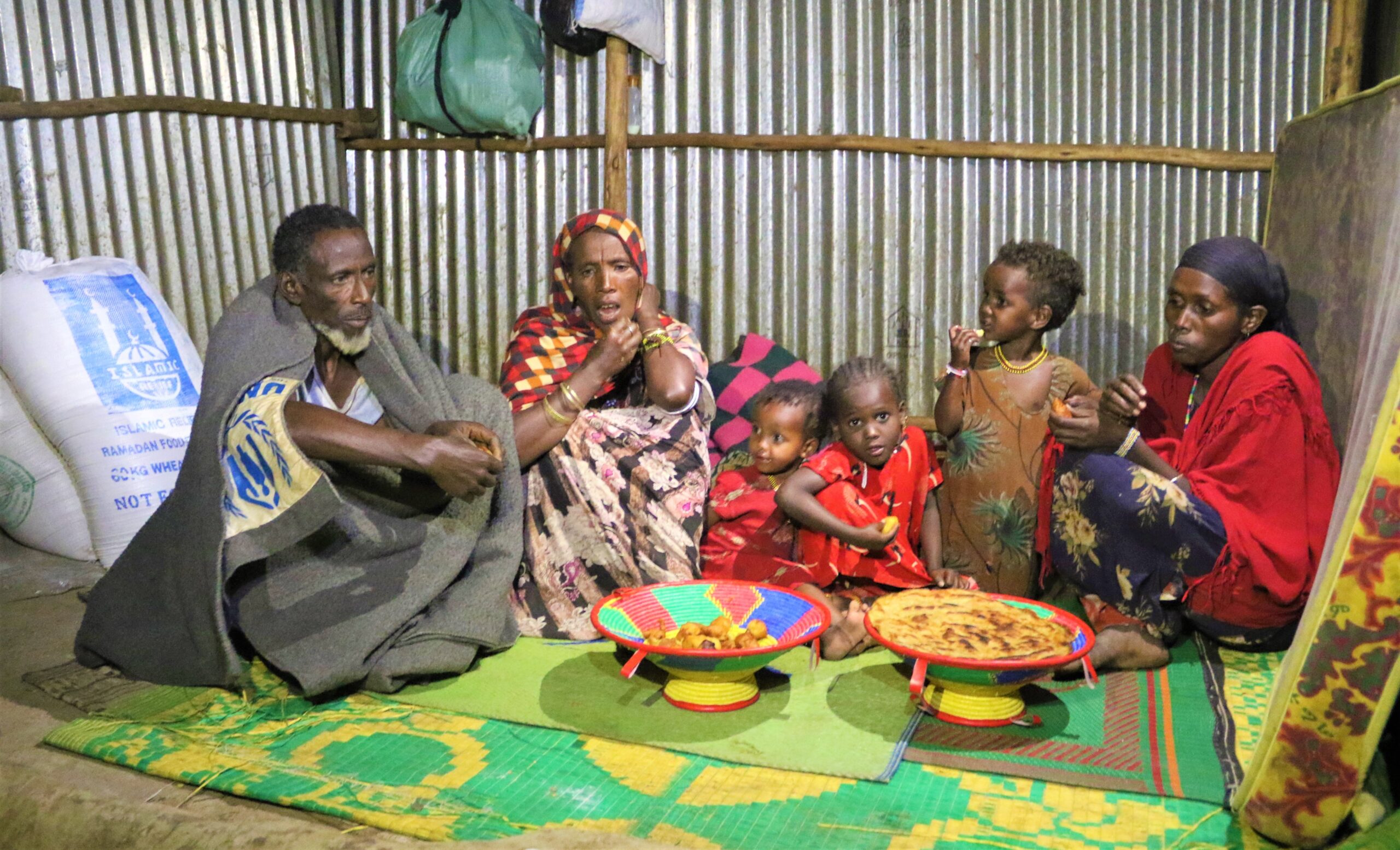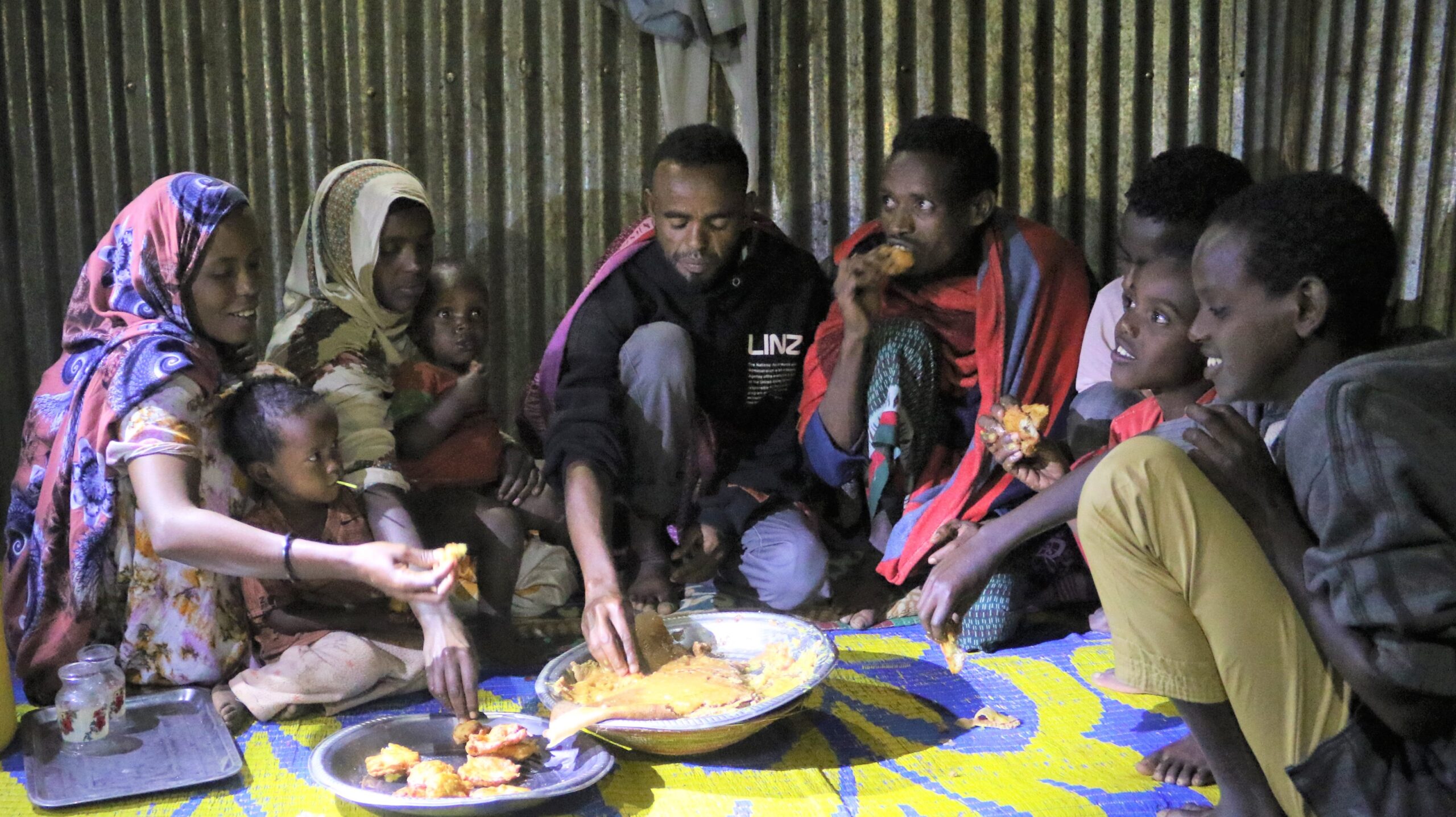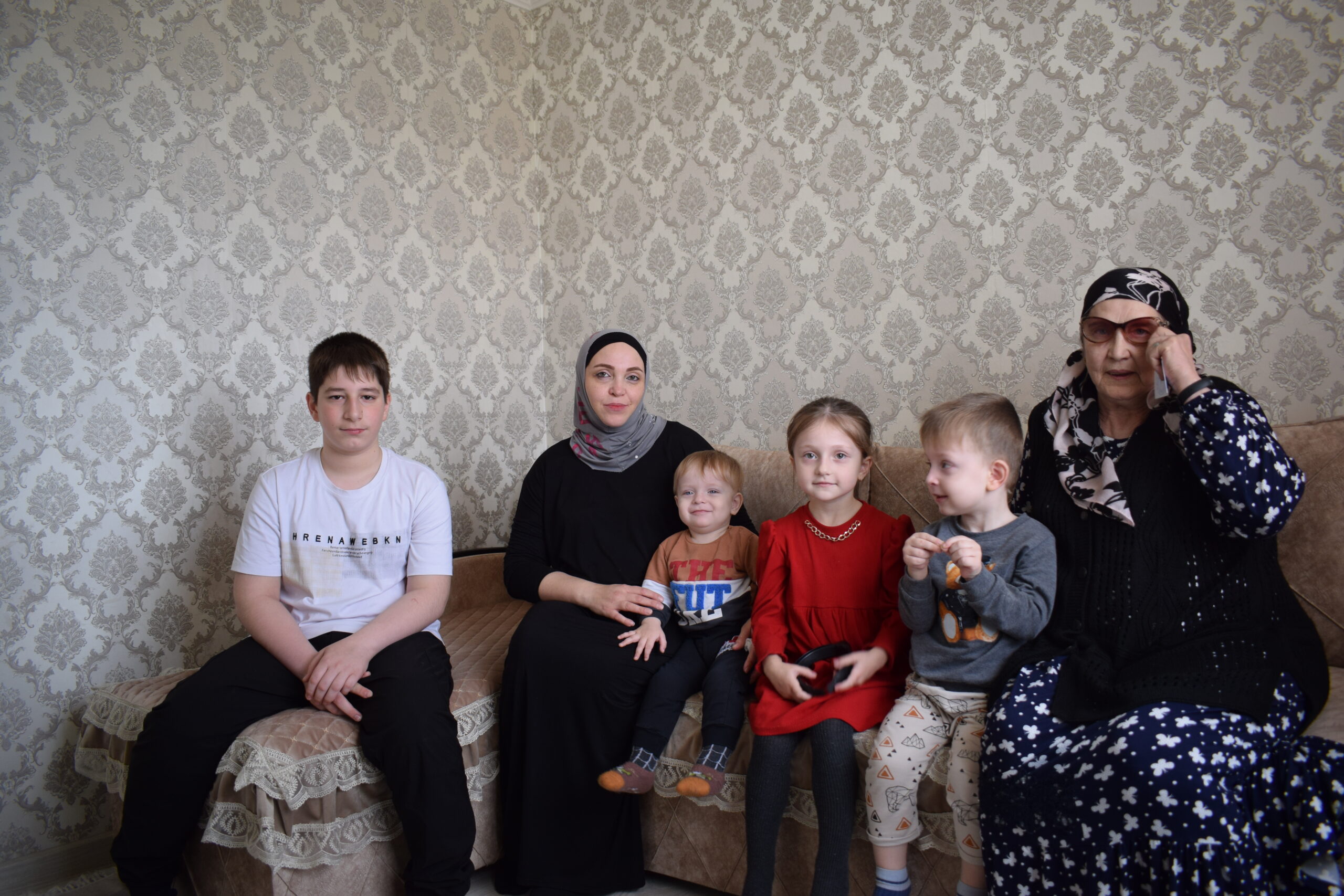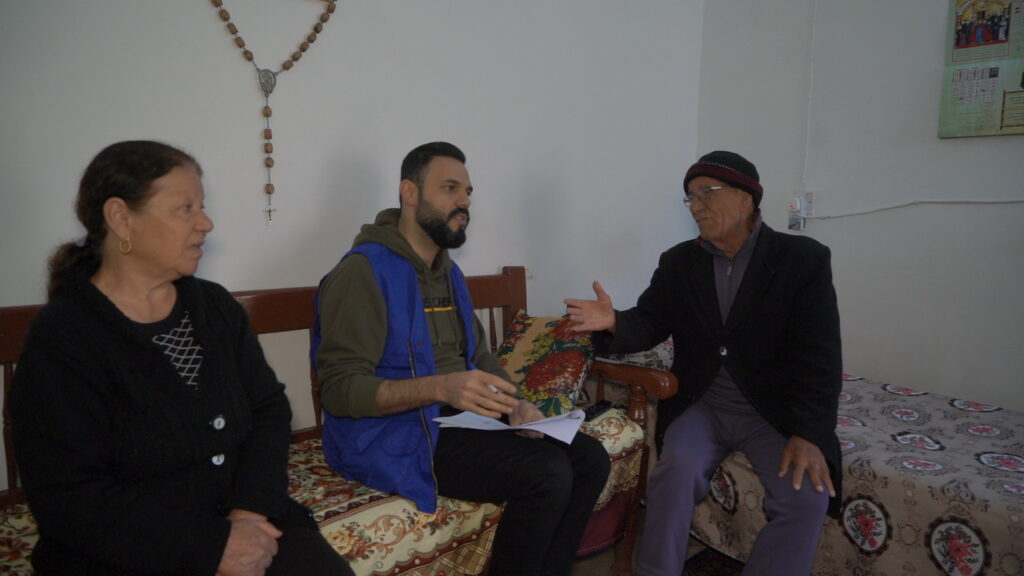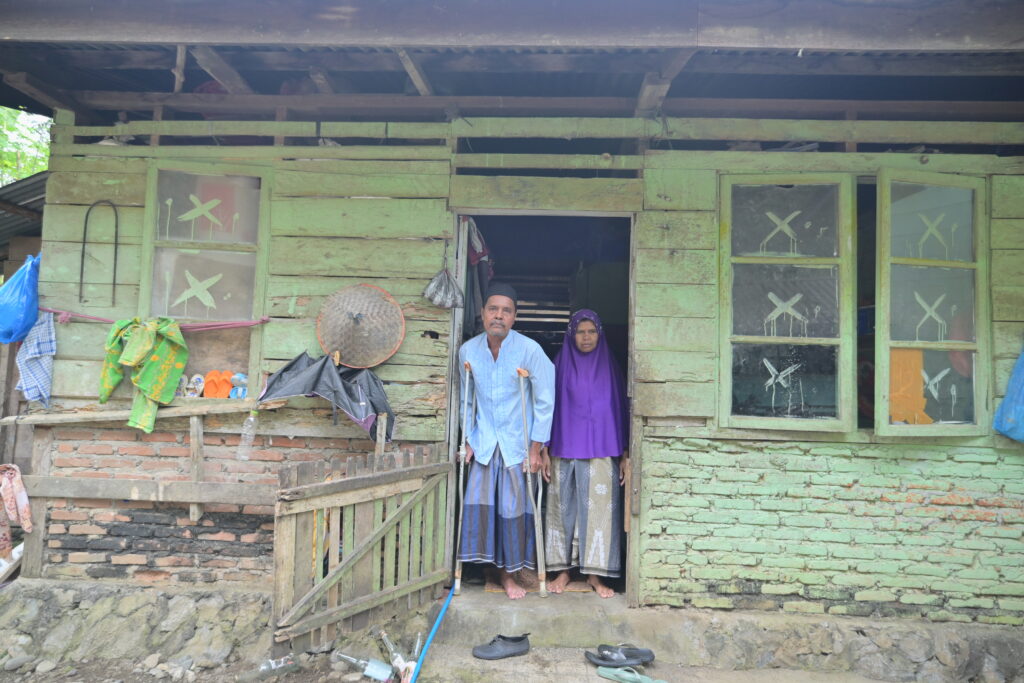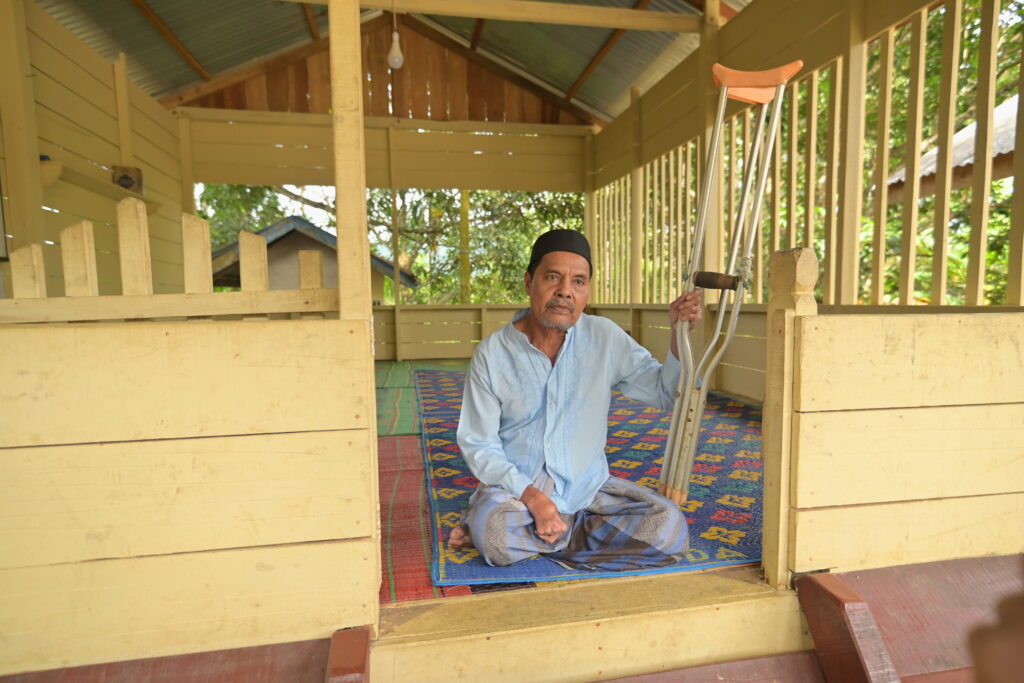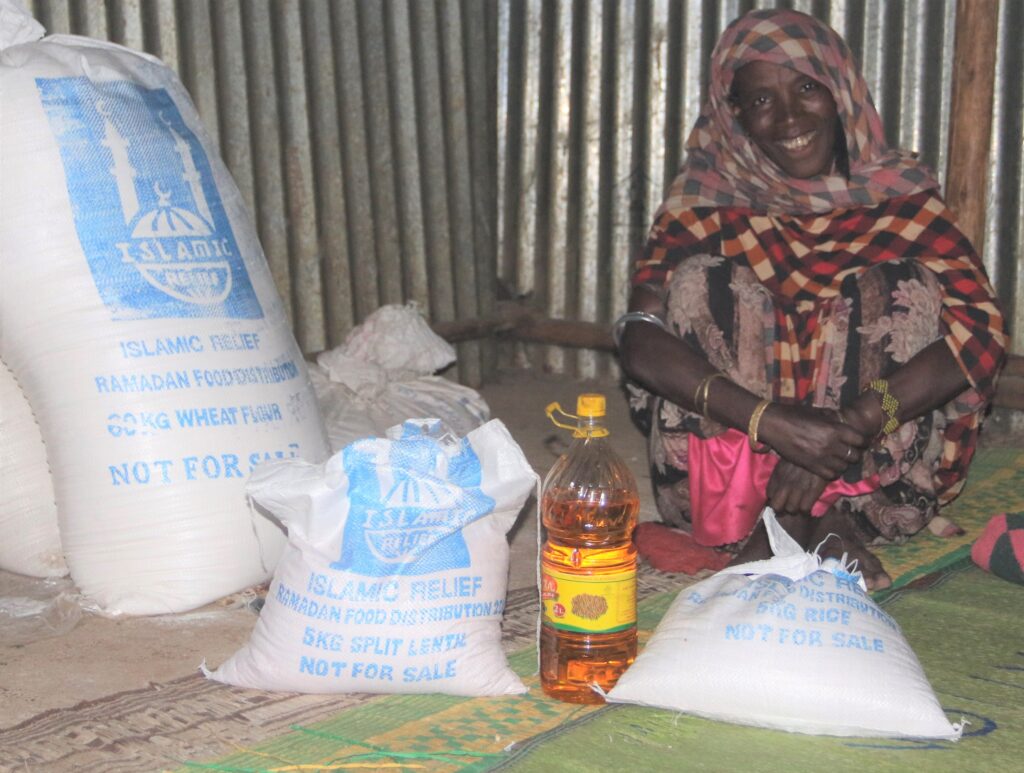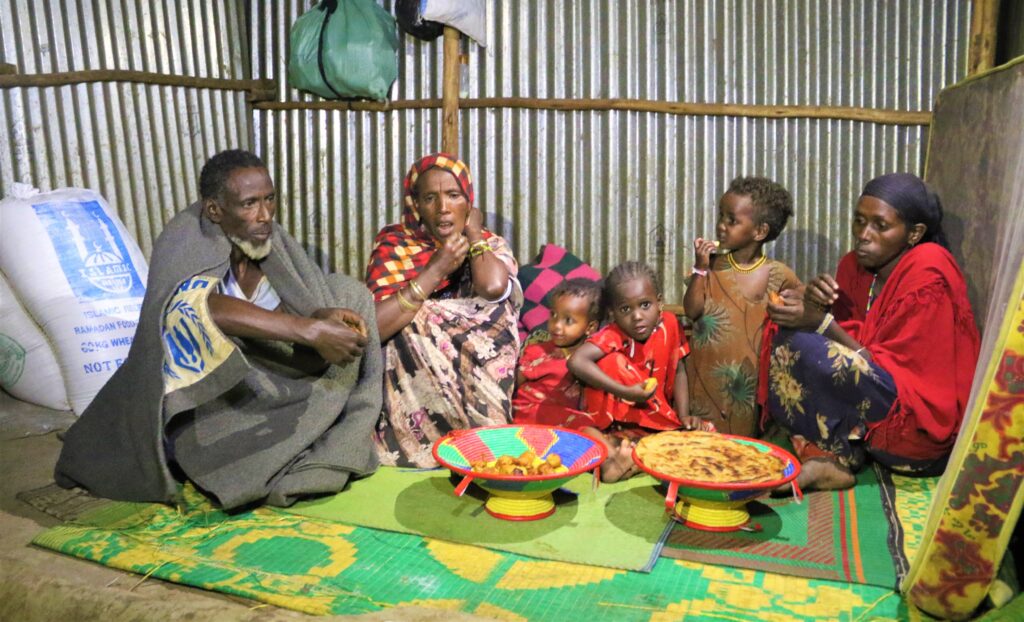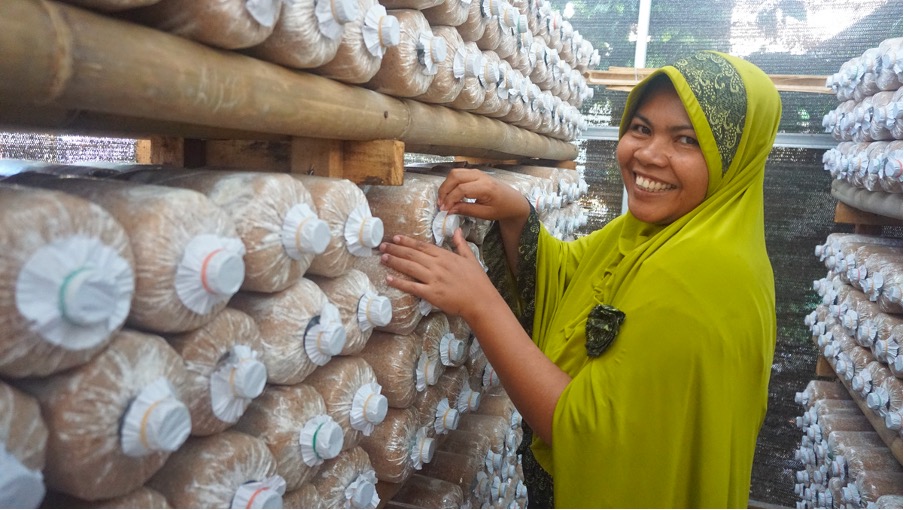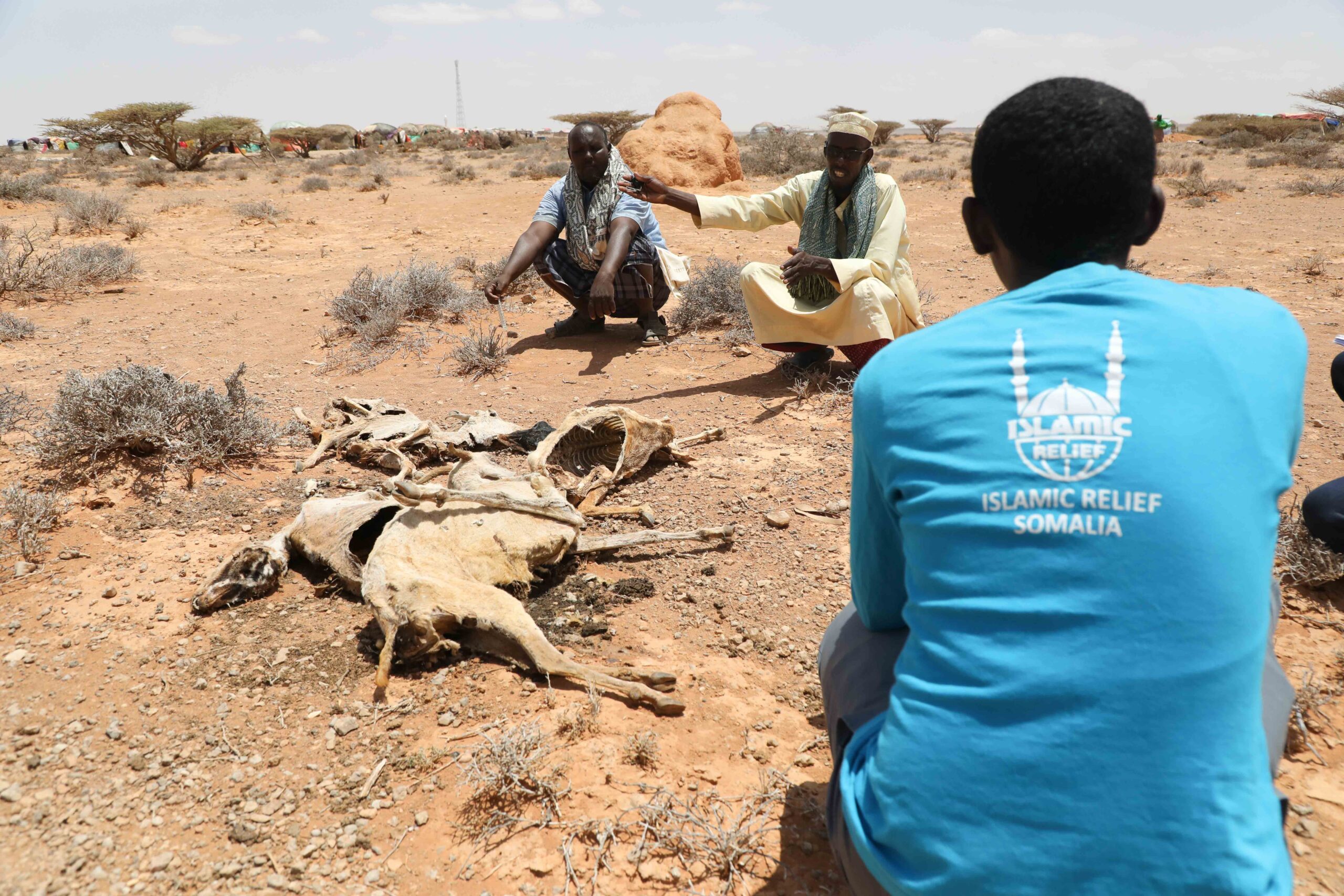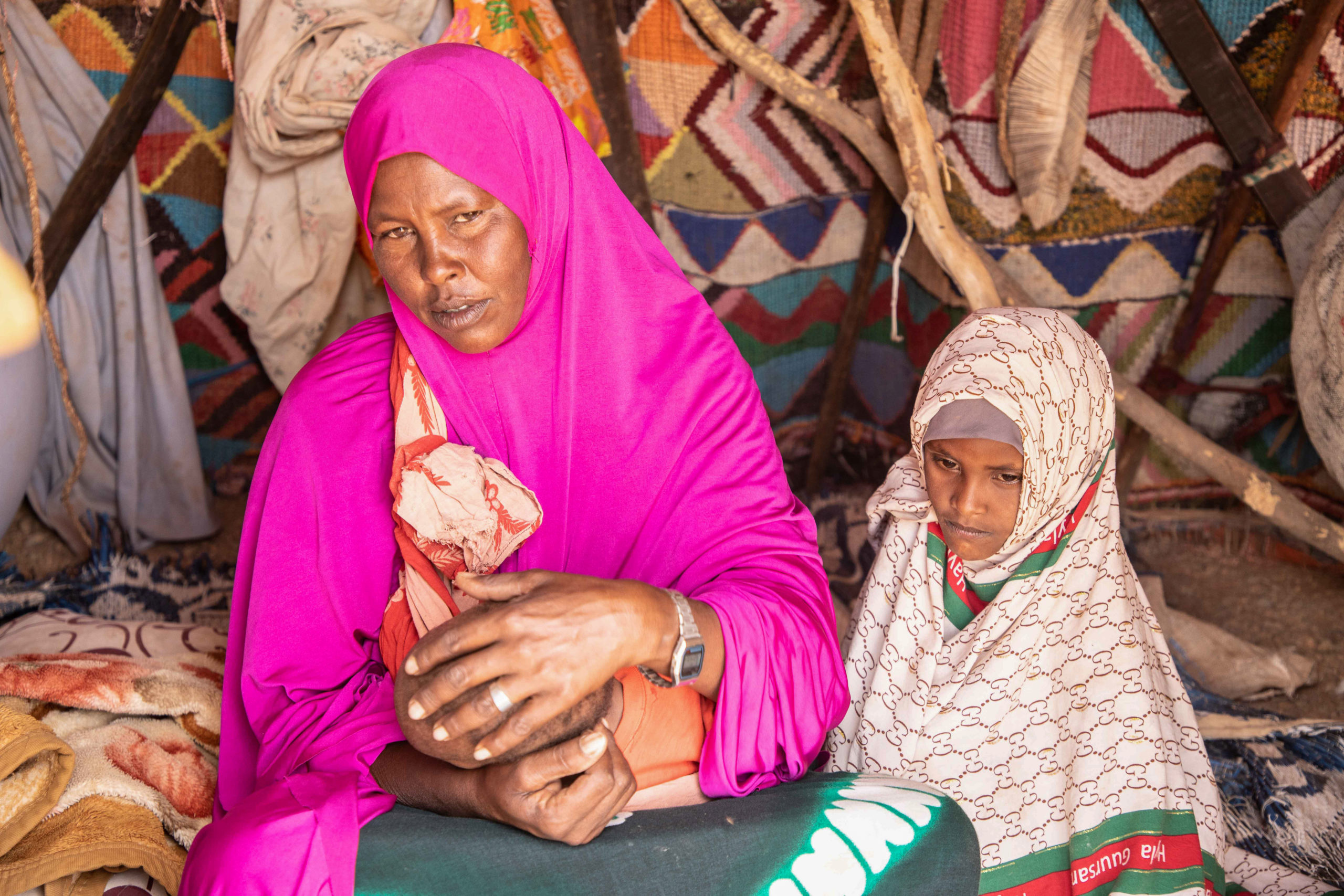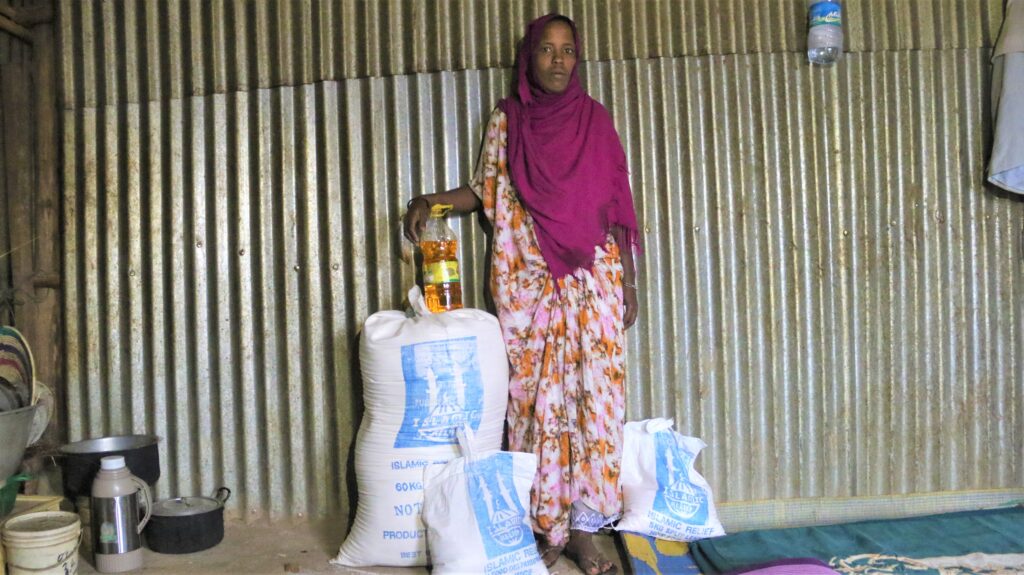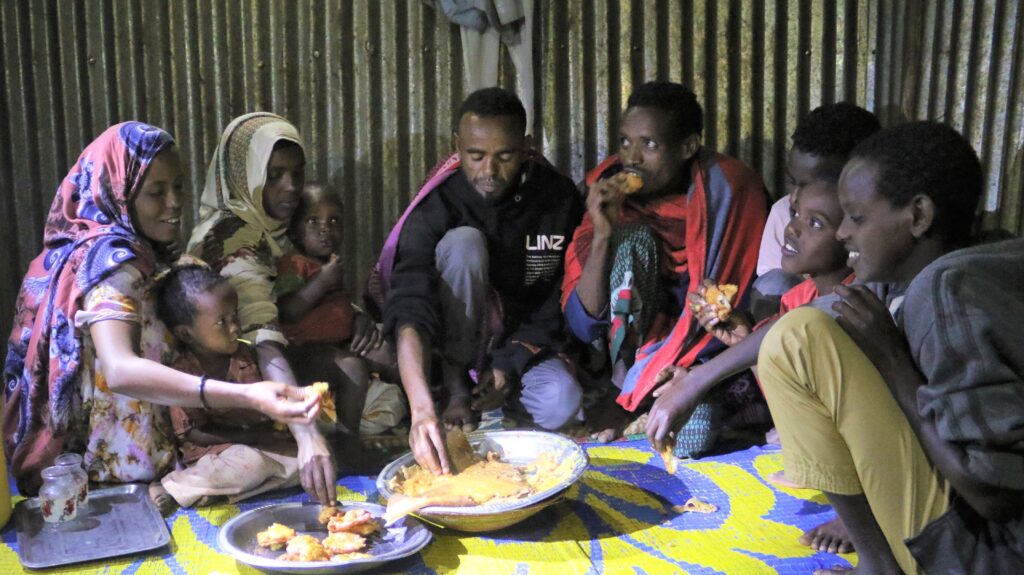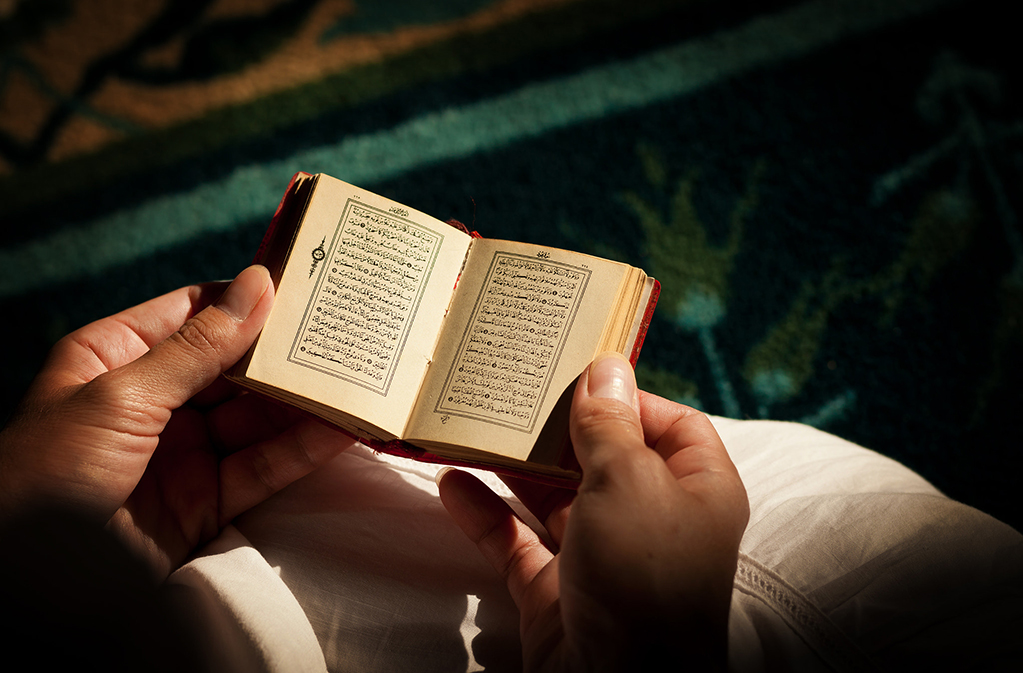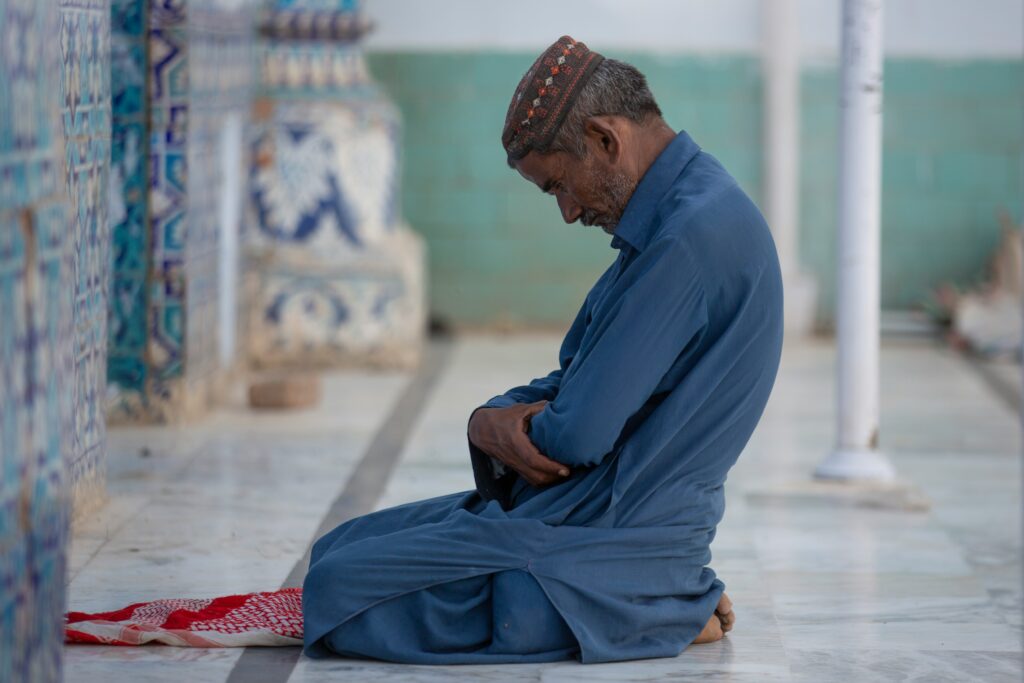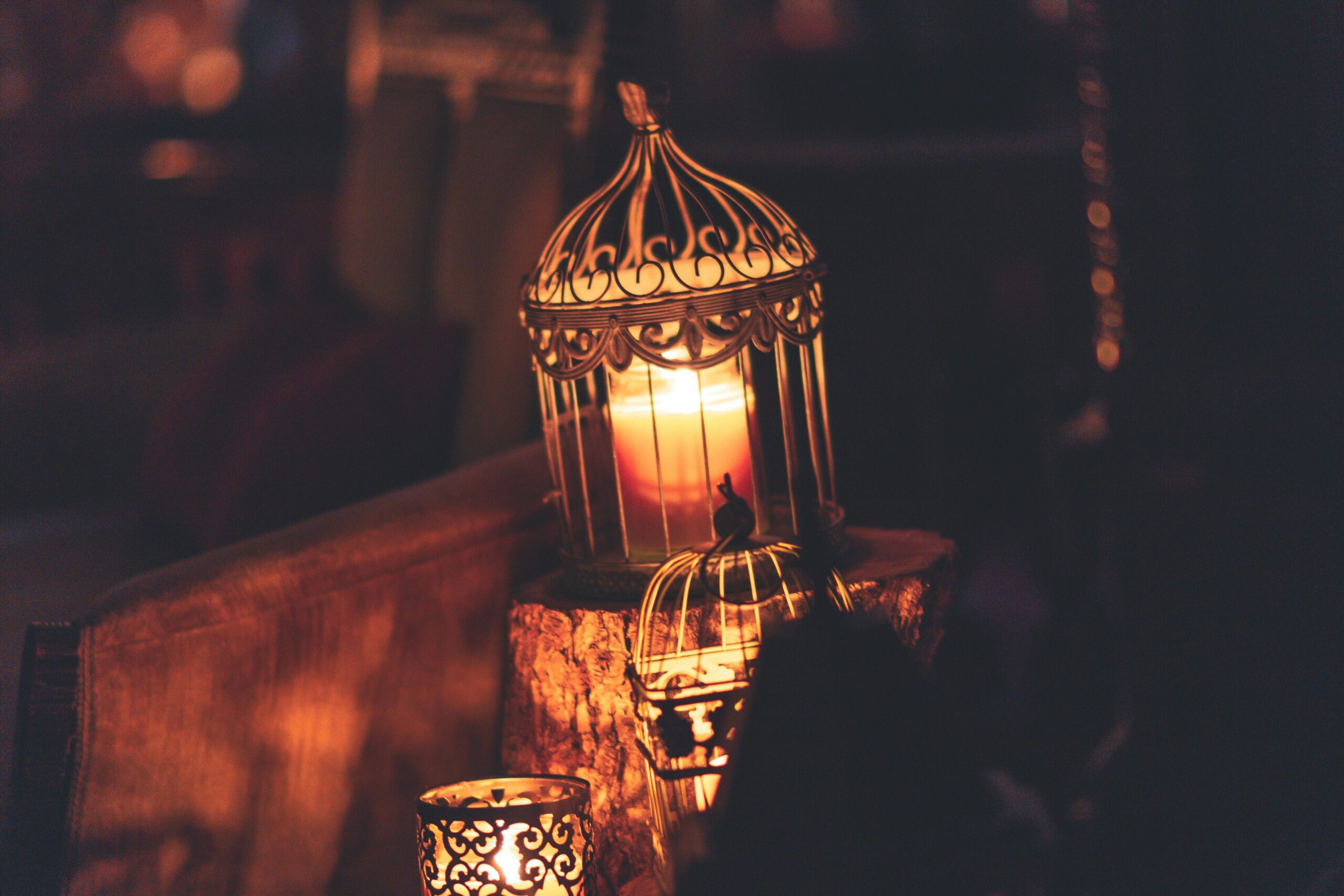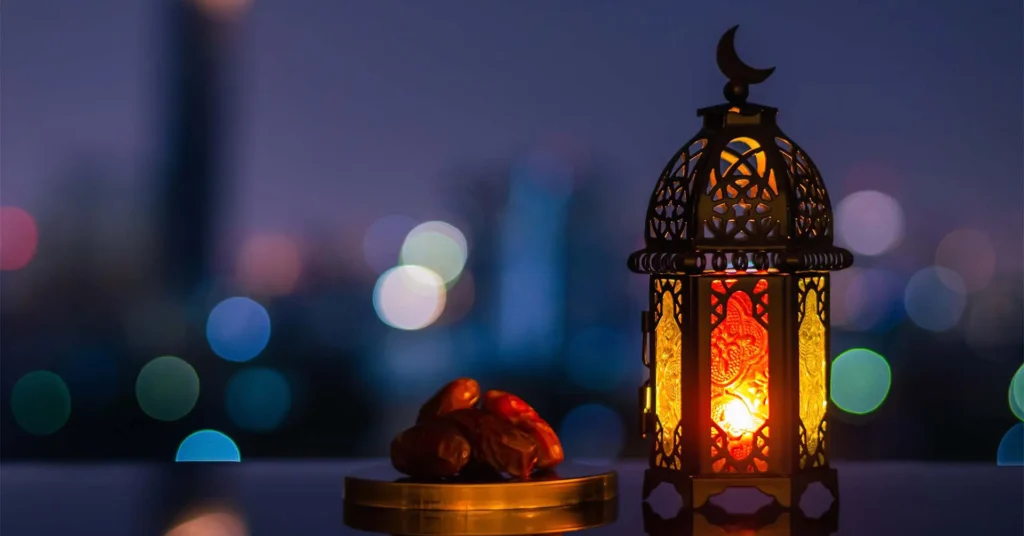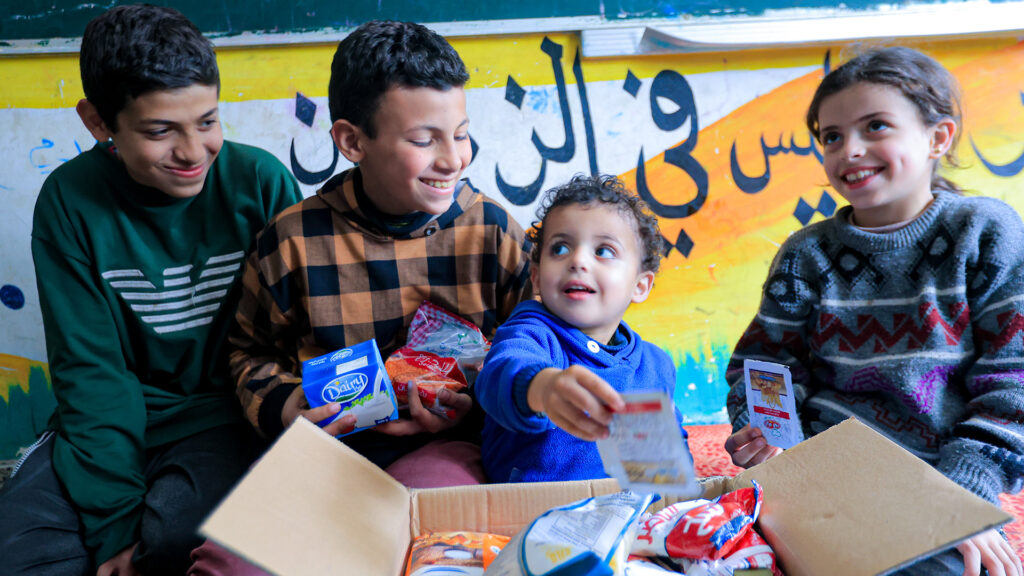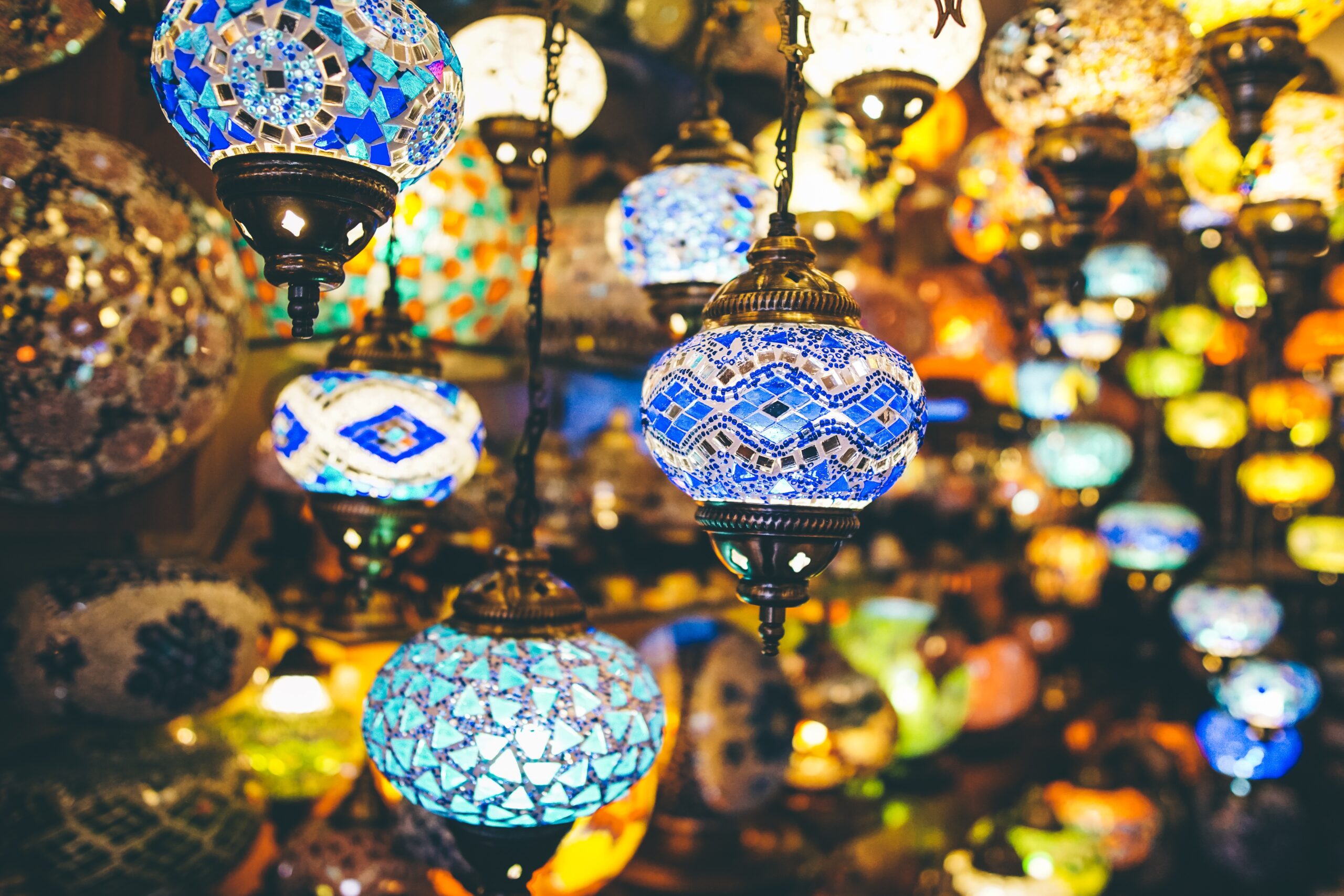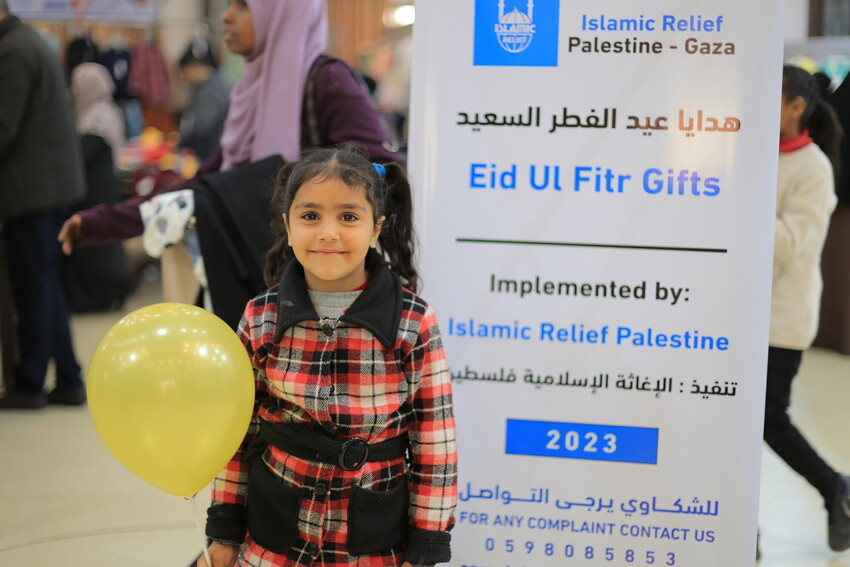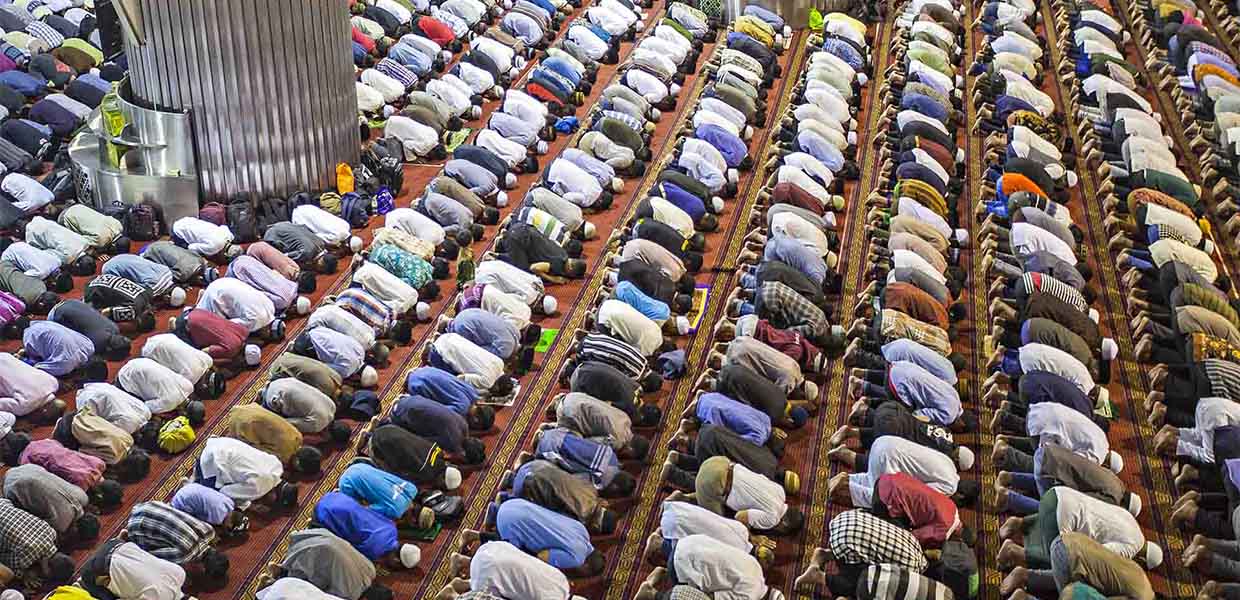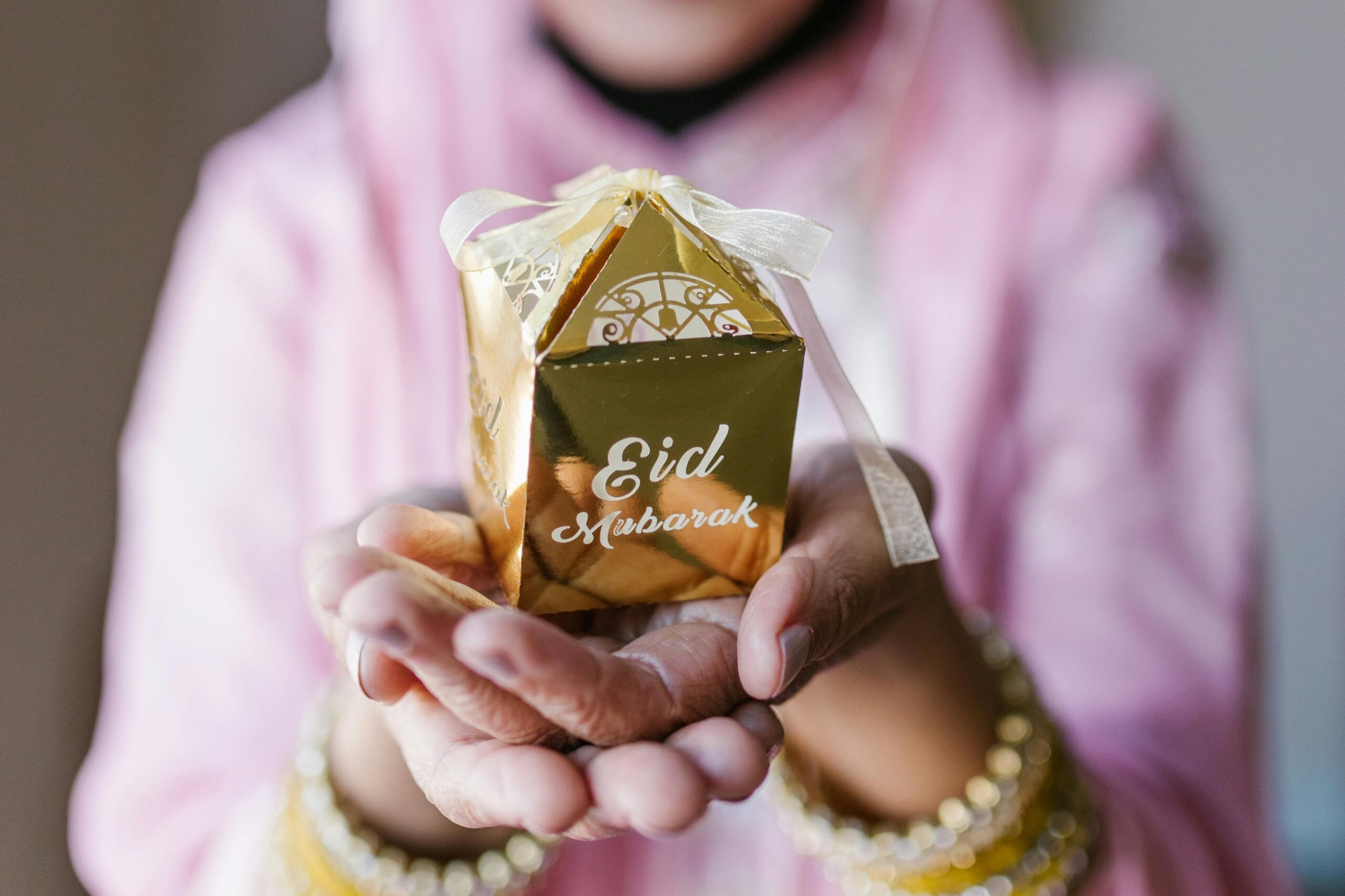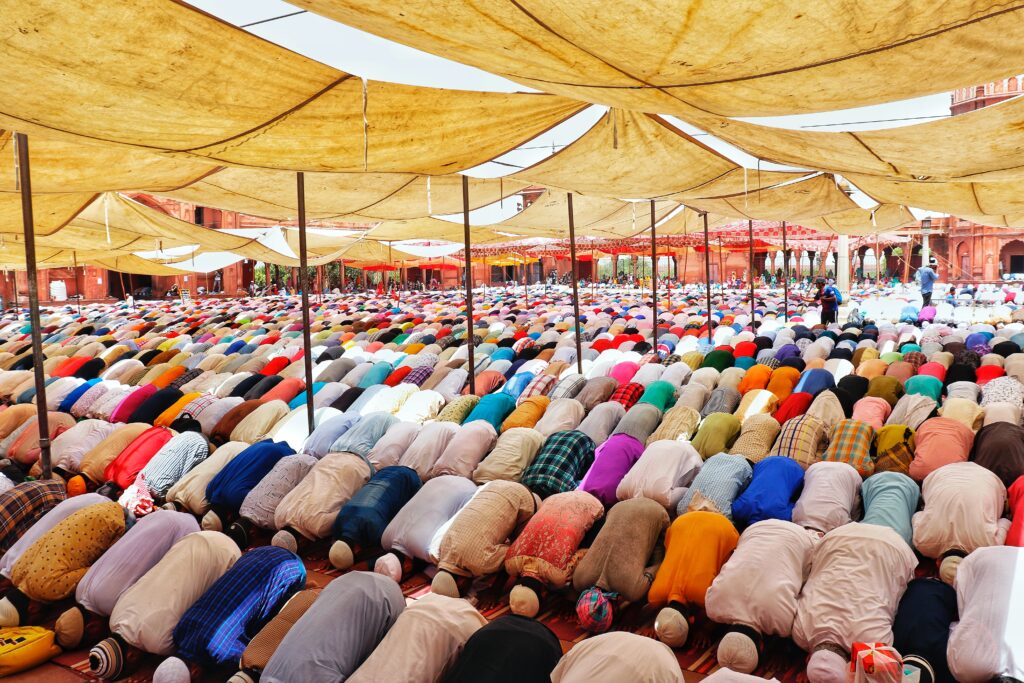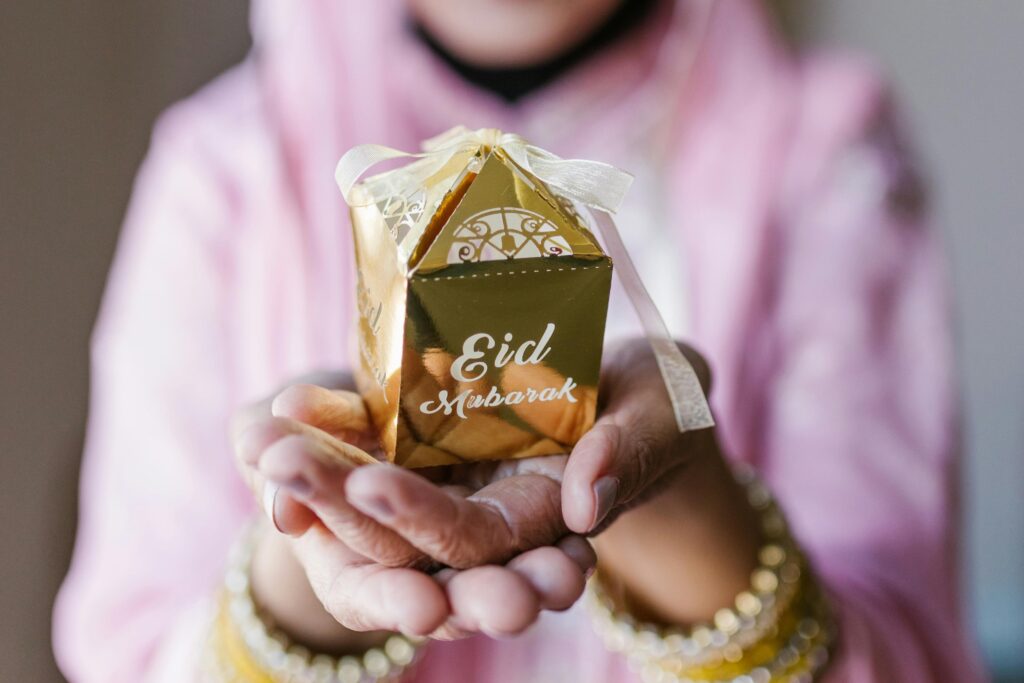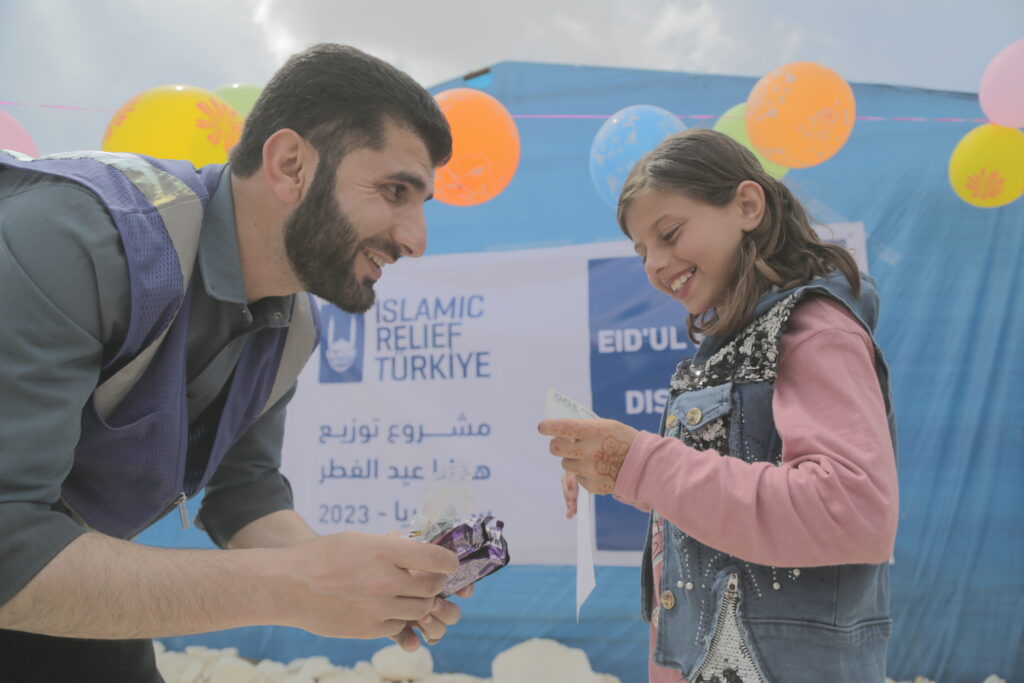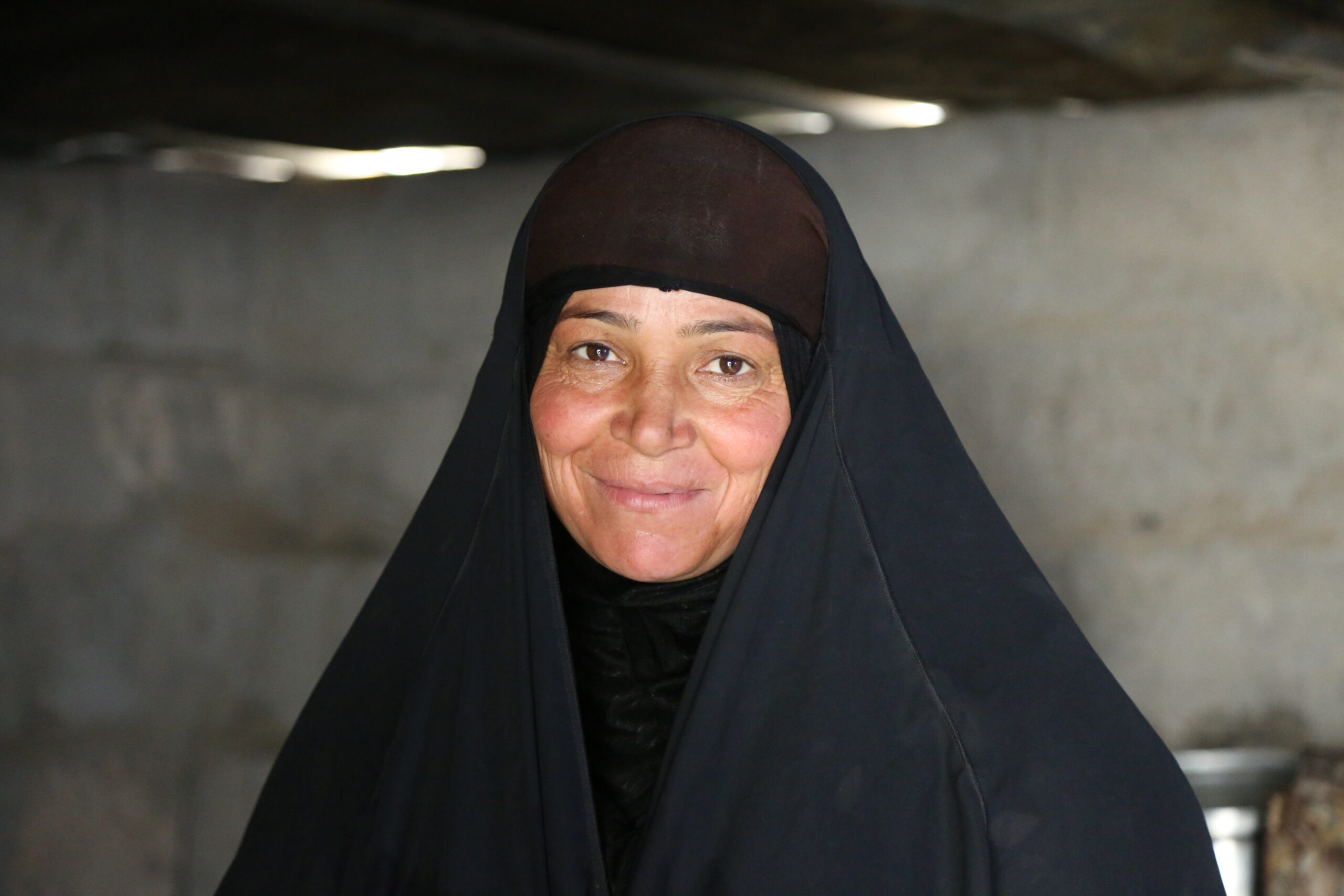
04.16.24
Um Muhammed’s Story: Supported Through Times of Hardship
Um Muhammed is a 35-year-old Iraqi woman. She currently lives in Al-Anbar-Faluja-Alshuhadaa and has benefited from IRW-Iraq food basket distribution for Ramadan.
As a widow, she is the sole head of her family. Um Muhammed has four children of different ages, who all live with her. They are Muhammed (10 years old), Rasool (9 years old), Ali (8 years old) and Reem (6 years old).
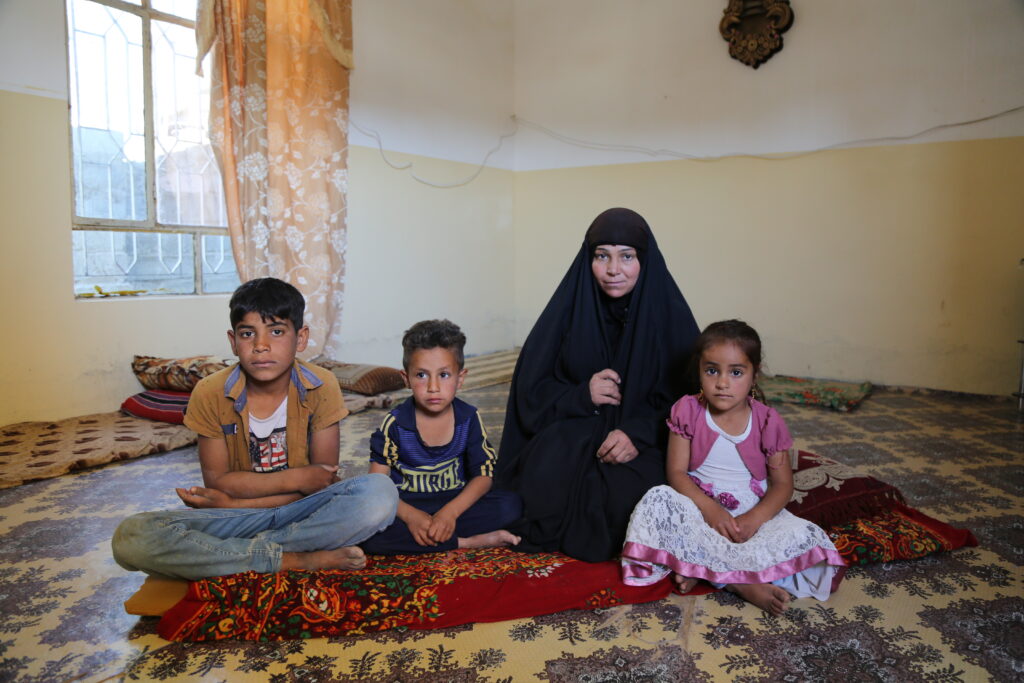
She said, “I was widowed overnight and had to support my four children alone, which shocked me deeply. After the death of my husband, some benefactors gave me a cow, which I raised and whose milk I sell to the teachers of the village and to some neighbours. It is my only source of income to feed my children.”
Struggling to Provide for Her Family
Regarding the difficulties she faces in providing for her family in terms of food, water, health and other basic needs, Um Muhammed said, “Everything has become very expensive, which is stressful and uncomfortable for me.
“My children’s needs increase with the start of the school season, such as school fees, clothing, and an increase in seasonal diseases. One of my biggest challenges is keeping my children in school and not missing out on the opportunity to learn because I have lost it. The vacations greatly affect my income, forcing me to sell the milk for half its value to ensure my daily subsistence.”
Regarding hard times and the effect of food shortages on her family’s life, she said, “Sometimes my children sleep without dinner after a long night of crying, so my psychological state breaks down and I don’t sleep at night.”
Daily Life in Iraq During Ramadan
Regarding the impact of the month of Ramadan on her life and what it means to her, she said, “I look forward to Ramadan because there is a spiritual atmosphere and people donate money and food, which allows me to save money to meet other basic needs.”
She also discussed her daily routine during Ramadan. She said, “During Ramadan, we gather with our family members and neighbours to read the Quran and listen to religious lectures, which has given us a better understanding of the teachings of the religion and how to relate to others, especially during fasting.”
As for their normal diet during Ramadan and throughout the year, she said, “We depend for our food on cereals and bread provided by the state rations, which are not enough for us. Sometimes I also depend on milk from my cow, so I heat the milk and give it to my children to make up for the lack of food. During Ramadan, our diet varies a bit. My children love the Makhlama dish, which consists of potatoes, onions, peppers, eggs and sometimes meat, if available. I also make pudding from my cow’s milk.”
How Islamic Relief Helps
Regarding What is the impact of IR food distribution in her community during Ramadan, she stated that many people in my village suffer from poverty, so the Ramadan food basket is a great joy because it contains a variety of foods that we often cannot provide, as well as a sufficient amount for the month of Ramadan.
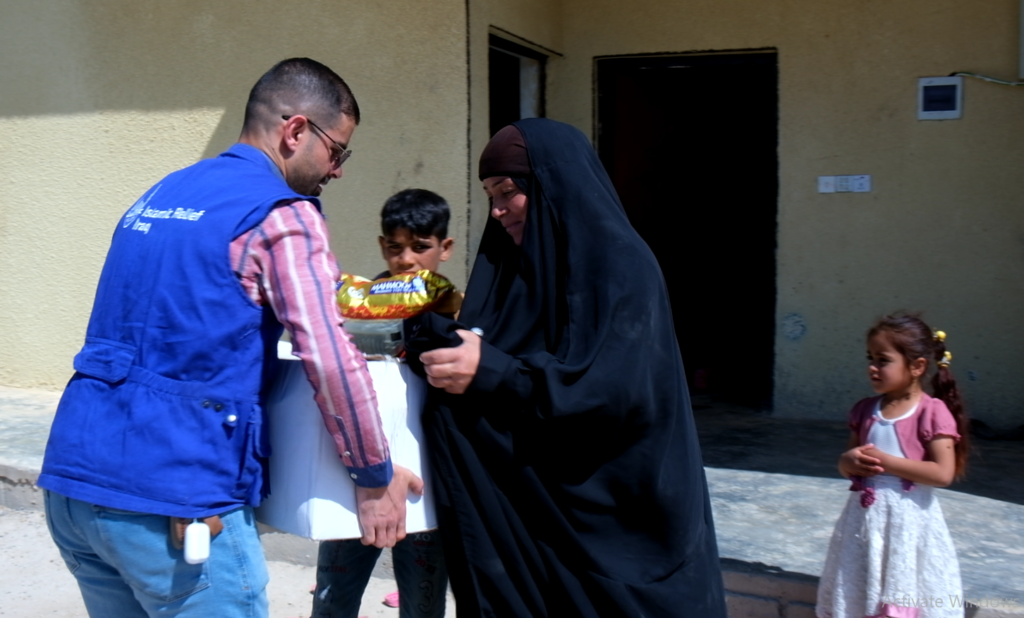
As for how the Ramadan food package helped her and her family, she said that the Ramadan food basket allows her not to have to buy food, and also contains a wide variety of products, allowing her to cook more food, which the children look forward to and love to eat for Fotoor.
When asked how she knows about IRW-Iraq and whether she has benefited from any other IRW-Iraq projects, she replied, “An IR Iraq employee visited us at home after a member of the village explained my living situation”. The employee asked me several questions and asked for information about my children, their ages and my livelihood. After a few days, one of the employees informed me of the distribution date.
She was asked how we could improve our food packages for Ramadan. At that, she replied, “The food basket contains the necessary and basic products, especially during the month of Ramadan, and I think it meets all our needs.”
Finally, she said, “You have brought joy to my home, which encourages me to take time to focus on worship during the month of Ramadan”. My children and I wish you much success. May Allah reward you in the best way possible.
Give Families Hope and Relief
Keep the blessings of Ramadan going. Give families in need the opportunity to enjoy nutritious food, rebuild their livelihoods and more.

